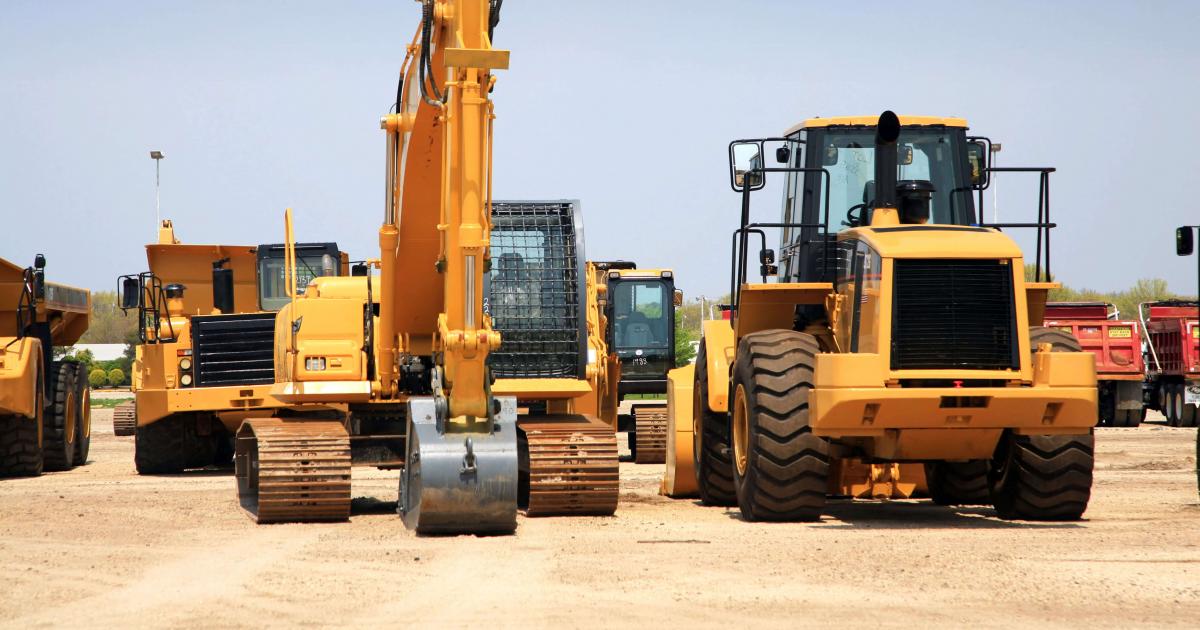Construction projects often require heavy-duty equipment to get the job done quickly and efficiently. But what are the pros and cons of using this type of equipment? In this blog post, we’ll discuss the advantages and disadvantages of using heavy-duty equipment for construction projects, so you can make an informed decision about the best option for your project.
The Benefits of Heavy Duty Equipment
Heavy duty equipment is a great asset for any job. It can be used for a variety of tasks from construction to farming, allowing for more efficient and effective operations. By investing in heavy duty equipment companies can gain access to higher quality tools which will help them streamline their work processes. This equipment is durable and reliable so that you won’t have to worry about replacing it anytime soon. It is an investment that pays off in the long run as you reap the rewards of increased productivity and efficiency.
Heavy duty equipment is specifically designed to be more durable, able to withstand higher amounts of wear and tear than regular equipment. This makes them an attractive cost-effective investment for any business, as they are likely to last for a longer period of time before needing repair or replacement. Furthermore, this increased durability means that heavy duty equipment may even be used in harsher environments without the same risk of breaking down that you would see with regular tools and machines.
Moreover, heavy duty equipment is far safer to operate due to its superior structure and design. This results in fewer accidents occurring on the job site, which promotes a safer and healthier working environment for all involved. Heavy duty equipment has revolutionized the way we work, making it possible for people to conduct their business with greater efficiency and confidence.
Common Types of Heavy Duty Equipment
Crawler dozers, excavators and wheel loaders are all important pieces of heavy duty equipment that are commonly used to help in construction and mining projects. They allow for an efficient way of completing the task at hand and making large areas for construction or mining more manageable. Crawler dozers can be used to grade land and reshape the earth, excavators can dig underground tunnels or foundations, while wheel loaders help move materials from place to place – all helping to complete big jobs with heavy duty equipment.
Heavy duty equipment like articulated haulers, dump trucks, and motor graders are essential for large scale earthmoving projects. Articulated haulers have the ability to travel over rough terrain and can transport large loads of material. Dump trucks are commonly used for hauling rock, soil, sand and gravel to the job site. Motor graders are regularly employed to create level surfaces like roads and runways by removing excess dirt or adding new soil. Heavy duty equipment is an integral part of any major earthmoving project.
Next, cranes are essential for all types of heavy-duty equipment operations. They can lift and move objects more easily, quickly, and safely than manual labor ever could. Cranes provide improved access to the workspace and reduce the risk associated with working with heavy loads. Moreover, they make it easier to work smarter and faster in a wide range of industrial settings.
Considerations for Purchasing and Maintaining Heavy Duty Equipment
When looking to purchase heavy duty equipment, it is important to make sure that you know all the options available. Research the different types of equipment, features and specs in order to find out which one best suits your needs. Heavy duty equipment is an investment and it’s important to make an informed decision by researching all the available options before making a purchase.
Regular maintenance is essential for keeping your heavy duty equipment in good condition and ensuring it runs properly. Maintenance should be done regularly, to check that all parts of the machine are in working order and any faulty or worn out components can be replaced before they lead to a bigger problem. Furthermore, regular servicing will keep the machine running efficiently and reduce costly repairs down the line.
Besides considering the size and weight of heavy duty equipment when making a purchase, it is also important to note the application in which you will use it. Some performance features and capabilities may be impacted by the size or weight of the equipment if used in certain applications. Ultimately, doing research into each piece of equipment before making a decision can help to ensure that you make an informed purchase that meets your requirements.
Potential Hazards of Using Heavy Duty Equipment
Heavy duty equipment can be incredibly useful, but it is important to understand that it can also pose a risk if not used correctly. Proper training and understanding of safety guidelines are essential when operating heavy duty equipment to ensure the operator’s safety as well as those in their vicinity. It is essential to follow all the recommended safety protocols to avoid any potential risks associated with these types of machinery.
Taking care of heavy duty equipment is essential for a safe workplace. If preventive maintenance is neglected, it can lead to malfunctions that would cause hazardous accidents and serious injuries. It’s important to remember that regular upkeep of the machinery, such as lubrication, inspection and replacement of parts, can help keep equipment running smoothly and reduce the risk of injury due to sudden failure.
Meanwhile, workers must exercise caution and be aware of their position relative to other workers and potential hazards when operating heavy duty equipment. It is extremely important that safety protocols are followed to prevent any injuries or fatalities. By being conscious of our surroundings while manipulating these machines, we can ensure the safety of all individuals in the work environment.
Safety Tips for Operating Heavy Duty Equipment
When working with heavy duty equipment, safety should always come first. It’s important to take advantage of all the safety features provided on the equipment such as guards and shields. In addition, it’s essential to wear the proper protective gear, like eye protection and steel-toed boots, when operating heavy duty equipment in order to ensure your safety.
Before using heavy duty equipment, it is important to read and understand the operating instructions. Failing to do so can put you in danger as well as make tasks that should be relatively easy, much more difficult. Therefore, always take the time to familiarize yourself with any heavy duty equipment before attempting to use it – this way you can work safely and efficiently.
Moreover, it is important to inspect heavy duty equipment for any damage or malfunctioning parts before beginning any operation. Regular and thorough inspections of the equipment can be conducted by qualified personnel and help prevent issues such as operating failure or system breakdowns. By ensuring the safe use of all heavy duty equipment, hazards can be avoided, leading to successful operations and increased productivity.
When to Opt Out of Using Heavy Duty Equipment
Heavy duty equipment is designed for specific tasks that require more power or greater strength. However, there are certain jobs that can be too large and/or risky for any individual to handle safely, and in these cases it’s best to opt out of using heavy duty equipment. Additionally, if an individual does decide to use heavy duty equipment for a job, they should make sure to follow the proper safety protocols outlined in the user manual. Safety should always be a top priority when operating any sort of heavy duty equipment.
Heavy duty equipment is capable of completing difficult tasks, but safety and effectiveness should always be the top priority. If the terrain is too challenging for the machinery to accurately navigate, it’s not worth risking damage or injury. That is why it’s important to ensure that any heavy duty equipment works in harmony with its surroundings in order to provide maximum benefit while minimizing any potential hazards.
Also, when considering heavy duty equipment, remember to evaluate the requirements of the job. If precision is necessary, then manual labor may be the better option. Don’t skimp on quality and accuracy just to make use of heavy duty equipment. That’s why it’s important to consider all aspects before making a decision about which solution is best for your needs.
Conclusion
In conclusion, heavy-duty equipment can be a great asset on construction projects. It can help save time and money while also increasing safety and efficiency. However, it is important to consider the pros and cons carefully before investing in this type of equipment. With an understanding of the risks and opportunities that come with using heavy-duty equipment for construction projects, you will be able to make an informed decision about what’s best for your project.


Recent Comments